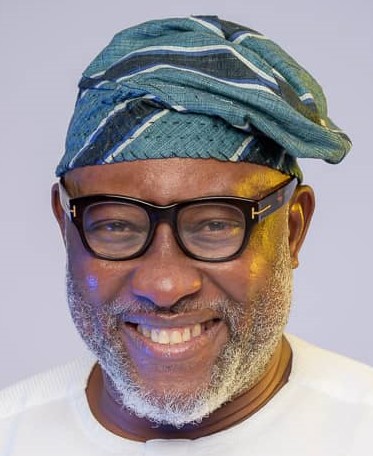NEPAD as a catalyst for economic integration in Africa
BY Ade Adefeko
The New Partnership For African Development, otherwise known as the NEPAD Agency, was established as an outcome of the integration of NEPAD into AU structures and processes. The NEPAD Agency is the technical body and implementing agency of the African Union tasked with the facilitation and coordination of the development of NEPAD programmes on the continent. As part of the strategic framework for pan-African socio-economic development, the agency mobilises resources and engages the global community, regional economic communities and member states in the implementation of these programmes and projects. As an aside, it is pertinent to mention that the CEO, Dr Ibrahim Assane Mayaki from Niger Republic, who has been at the helm since 2009 is an academician, former politician and Prime Minister of Niger but now works as a technocrat wearing a private sector type hat.
After the adoption of the Agenda 2063 Framework document by the summit in January 2015 as the basis for Africa’s long-term socio-economic and integrative transformation, NEPAD has over the years rolled out the continental frameworks developed by the African Union Commission (AUC), including the Comprehensive African Agricultural Development Programme (CAADP), Programme for Infrastructural Development in Africa (PIDA), Accelerated Industrial Development for Africa (AIDA), amongst others, to support member states of the African Union in their development efforts. These frameworks are being implemented by some member states and have been captured as priority areas of the first ten-year implementation plan carved out of the Agenda 2063 50-year strategic document. A creative and positive fallout of this was the creation of the Grow Africa Partnership of which there is a nexus with NEPAD and WEF.
GROW AFRICA PARTNERSHIP
Grow Africa Partnership was jointly founded in 2011 by the African Union (AU), the New Partnership for Africa’s Development (NEPAD) and the World Economic Forum (WEF). Since then, Grow Africa’s mission has been to mobilise private sector investment in African agriculture and accelerate execution in support of national and continental priorities. Grow Africa’s role has been to catalyse the potential for private sector investment to generate economic growth and job creation, particularly among smallholder farmers, women and youth. This has been achieved through playing a convening role between key stakeholders in African agriculture, particularly governments, international and domestic agriculture companies and smallholder farmers, with the goal of working together to lower the risk and cost of investing in African agriculture.
In the past four years, Grow Africa has developed a strong reputation for mobilising private sector investments that improve smallholder incomes and create new jobs. Cumulative investment commitments grew from $3 billion in 2012 to approximately $10 billion in 2015. At the last annual stock-taking of these commitments based on my research, US$2.3bn out of US$10 billion original investment commitments had been converted into actual investments, reaching over 10 million smallholder farmers and creating 88,000 new jobs created in agriculture.
Grow Africa’s core strength is its capacity to convene effective multi-stakeholder partnerships that have a direct and positive impact on investments in agri-business. Through effective structuring of partnerships and platforms, Grow Africa contributes to building trust and confidence between public and private stakeholders, connecting partners and linking new private investment opportunities to policy reform.
In the absence of strong policy alignment and coordinating structures within the sector to support value chains, private sector investment intentions do not always translate into commercial value chain activities. Such linkages are important in generating shared value and ensuring long-term collaboration among sector players. Grow Africa is currently working towards addressing this issues using a framework tool called the Country Agribusiness Partnership Framework (CAP-F).
CAP-F is a mechanism for establishing effective public-private engagement to create agribusiness partnerships in a country. It facilitates the alignment of private sector investments commitments with public sector policy/infrastructure obligations and provides a mechanism for all parties to hold each other accountable for their obligations. Agribusiness partnerships are unique in that they often involve numerous parties in both the downstream and upstream phases of the investment. An effective mechanism for mutual accountability is critical, CAP-F provides steps to address this issues. Grow Africa anticipates that in time, CAP-F (or similar frameworks) will be established in all African countries, making it much easier to establish agribusiness partnerships.
As the continental leaders convene in Nouakchott, Mauritania for the 31st Ordinary Session of the African Union Summit, it is only incumbent on the Heads of State and government to support these agencies they have set up for affecting economic change and socio-economic development for their citizens and to make them work for the people and help attain sustainable growth.
Beyond the political optics of grandstanding and declarations viz the Comprehensive Africa Agriculture Development Programme (CAADP) MAPUTO of 2003 and MALABO of 2014 declarations as a case in point. This simply urges member nations to commit 10% of their yearly budgets to agriculture and work on having member countries reach a higher path of economic growth through Agric led development leading to a reduction in hunger and achieving food security amongst others.
African leaders and heads of government should strive to with their financial and political muscle fund and enable our institutions and agencies achieve the noble objectives of the founding fathers of the Organisation of African Unity now African Union which simply put is political and economic integration.
